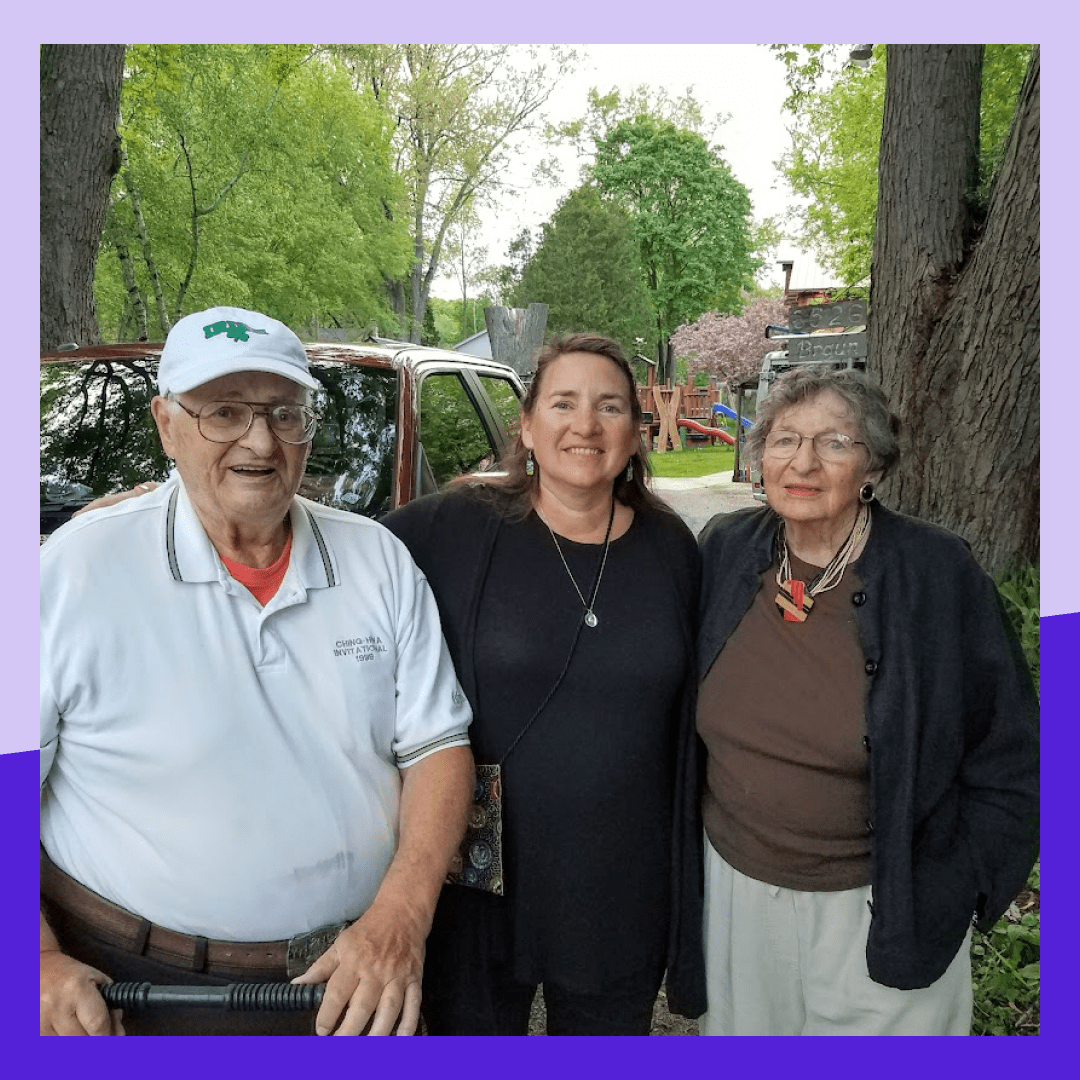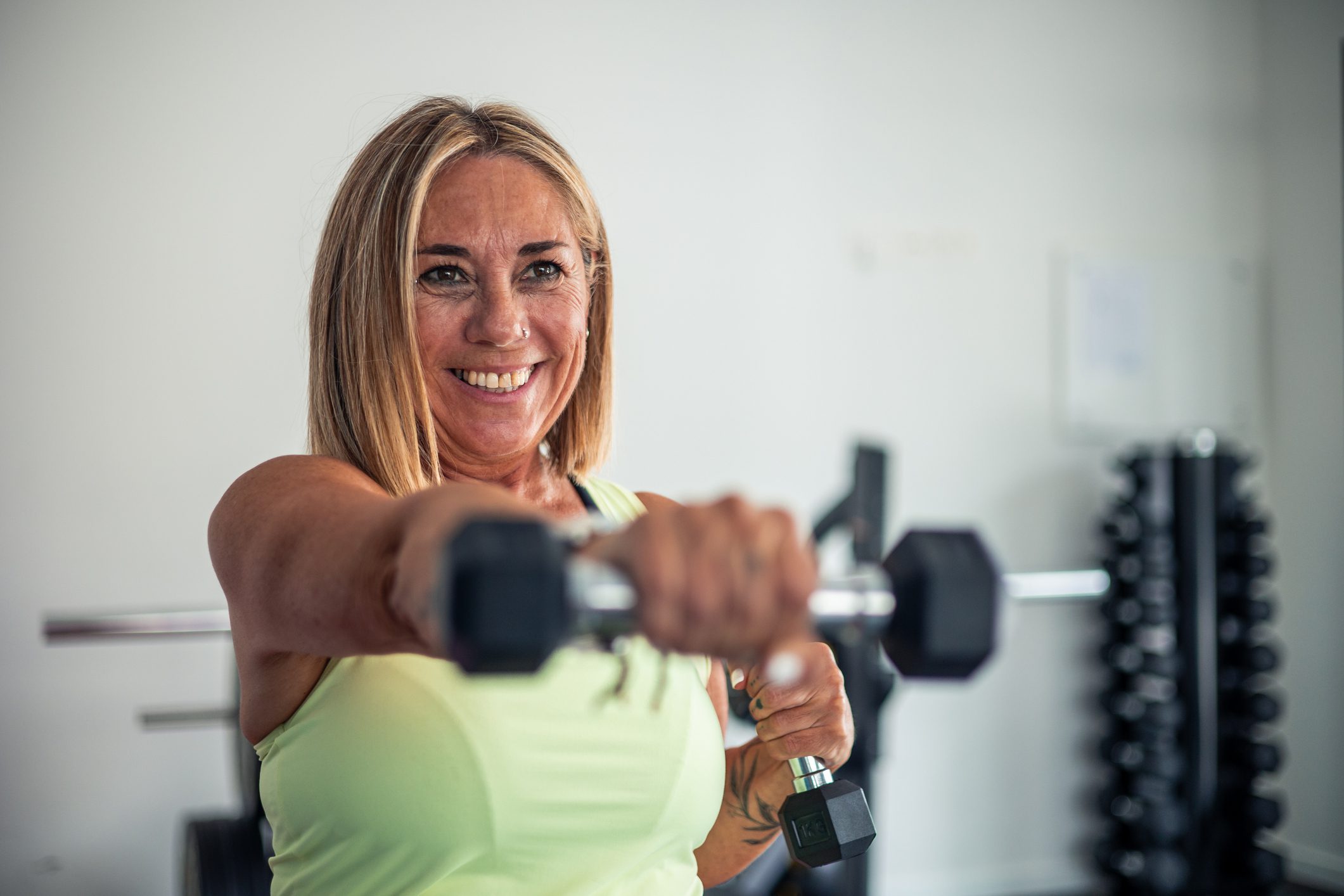
Published on Jan 17, 2023
Last modified on Jan 23, 2023
Beth Braun, NP Gets Real About The Emotional, Financial & Time Burdens Of Caring For Her Aging Father
5 min read

There’s a whole lot about the menopause experience that’s still shrouded in shame, stigma, and silence, which is exactly what Elektra’s on a mission to change. Outside of the “hot menopause topics” — think low libido, weight fluctuations, hot flashes, and mood changes — there’s also the very real fact that many women on their menopause journeys are members of the so-called “sandwich generation,” meaning they may still have children who aren’t fully independent in addition to aging parents who require their attention. In other words, they’re “sandwiched” between two generations, which leads to the inevitable stress of being pulled in multiple directions.
We’re of the belief that speaking up and out is the first step to changing the menopause narrative, which is why we were excited to sit down with Beth Braun, NP, one of Elektra’s Expert Guides, who opened up about her experience caring for her 91-year-old father.
Help set the scene for us here, Beth. How old is your father? And what has his recent health journey looked like?
My dad is 91 years old. My 88-year-old mother died in August 2022 after suffering a mild heart attack, then contracting COVID while in the hospital during her short recovery stay. She had done all the household management, shopping, cooking, and cleaning throughout their married life. They had been living independently in a condo, so after her passing we gave my dad the chance to do the same. The first month, he fell and broke his collarbone, then he needed to get the rest of his teeth extracted for full dentures. At that point, we ordered Meals on Wheels so he could have a soft diet; we also hired a household assistant for 10 hours per week at $20/hour. A couple of weeks later, we added a relative who is a nurse to help him bathe, administer meds, listen to his medical complaints, and get him to the dentist and other doctor’s appointments. We were paying her about $40/hour for 3 weeks until he started complaining that one foot was hot and the other cold. We got him to the ER, and he was diagnosed with osteomyelitis of a toe. After a 10-day hospital stay, he was released to a “sub-acute rehab center” for a medicare-covered 6-week stay to finish off the IV antibiotics and undergo physical therapy to get his strength back. We were set up with an agency to help us get him placed into “assisted living” following the rehab stay. Currently he is about 3 weeks into a 6-week rehab stay.
How has the experience affected you mentally and emotionally?
We are a pretty stoic family, matter of fact. The main emotional burden was feeling out of control of the outcomes of his facility placement. Guilt that his tiny toe ulcer slipped by all of us and turned into a pretty grave situation. Despite being medical people, we do not have exact experience with diabetic feet issues and vascular issues, especially over the phone and with a reluctant patient. There are a lot of decisions to be made and everyone has different opinions on what would be best. We have had some arguments. We try to have someone visit him daily for company and for advocacy in his facility. This is a burden for many of us who work and have families or who live out of town.
It’s hard to prioritize my own health when I’m spreading myself so thin — the time burden makes things like grocery shopping, cooking, and exercising more difficult.
How have you dealt with the financial burden of this experience?
My dad has roughly $100,000 dollars left, $30,000 of which is in an account where he does day trading of penny stocks (he was a stock broker his whole career, so this is a big part of his identity). Nursing homes have about 5 levels of care ranging from independent living apartments to assisted living to skilled nursing, with costs ranging from $3000-$10,000 per month. The very high-end places may require a $100,000-$350,000 endowment fee up front while mid-tier places may require 2-3 years of payment up front. We looked at 4-6 facilities with “an agent.” The preferred one is 2 years up front and $8000/month, although I think you get money back if you leave early or pass. My father has one year covered with his $100,000, so then us siblings (I’m 1 of 4) will have to contribute $25,000 each to cover the second year.
On average, how much time do you spend on caring for your father per week? Per month? How do you split it up between your siblings?
I have seriously considered quitting my jobs, taking a leave, or retiring early to take care of my dad at his condo. However, this is not feasible because I live 90 minutes away and have a 16-year-old son in the house. It’s probably too far to have my dad come live with me since he’d have to establish new medical care. One sibling has offered to have a hospital bed put in his house, but he has 4 school-age children and lots of pets so, while good intentioned, it’s likely not feasible or sustainable. A retired brother wants to travel and has not offered to take my dad in. My other brother and wife have also not offered. I am spending every other weekend traveling to see my dad and sometimes staying 2-4 days away from my home and livelihood. It’s hard to prioritize my own health when I’m spreading myself so thin — the time burden makes things like grocery shopping, cooking, and exercising more difficult.
My siblings and I are arguing more now than we have our whole lives; we all have different baggage from our upbringing, and it comes out in not-so-pleasant ways at times. So I’d recommend having a filter, holding back on some things, calling each other out respectfully, apologizing and forgiving, and moving forward.
Any words of wisdom to others in a similar position? Anything you wish you knew earlier?
It’s impossible to predict how things will turn out, but knowing the financial situation of your parent(s) is important. If my dad had no money left, then he would have been placed in a lower-quality institution. Power of Attorney is incredibly important, as is a living will (air tube, feeding tube, DNR). Also, my siblings and I are arguing more now than we have our whole lives; we all have different baggage from our upbringing, and it comes out in not-so-pleasant ways at times. So I’d recommend having a filter, holding back on some things, calling each other out respectfully, apologizing and forgiving, and moving forward. Gossipping among each other gets yucky at times. And remember, hospitals, medicare, and care coordination is slow, bureaucratic, and difficult to navigate…so much about the experience is out of one’s control.
READ MORE: Caring for Aging Parents? One Long Emotional & Economic Rollercoaster for Women


